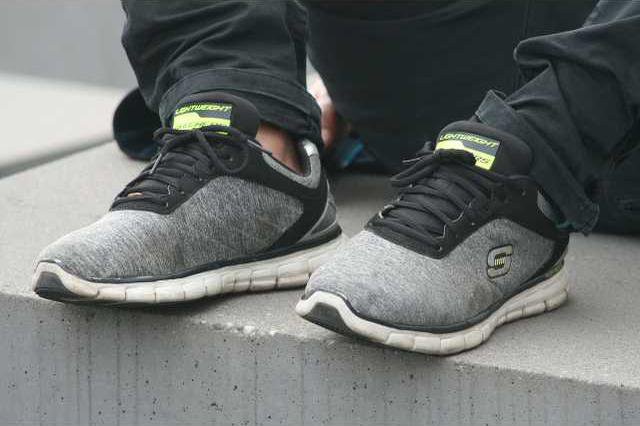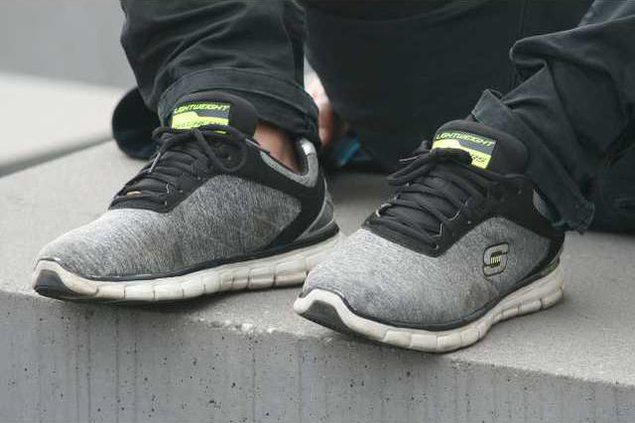Dont worry about buying an expensive pair of sneakers.
New research has found that the price of sneakers doesnt affect ones overall satisfaction with the shoe, according to Quartzs Marc Bain.
There is no statistical correlation between the list price of a shoe and how well rated it is, the report said. Actually, if you do a regression analysis, the data suggest that cheaper running shoes are higher rated than expensive ones.
The research, done by RunRepeat, a sneaker review website, comes despite the commonly held notion that spending more on shoes will lead to higher satisfaction, Bain reported.
Researchers, who analyzed more than 130,000 reviews of 391 kinds of sneakers from 24 brands, specifically looked at the 10 most expensive shoes, which had an average price of $181 and were rated 8 percent lower in satisfaction than the 10 least expensive shoes, which cost $61 on average, Bain reported.
Some of the more popular shoe brands, like Nike and Adidas, didnt receive high ratings. In fact, Adidas had the second-worst ratings of the bunch, and Nike stood in the middle despite the brand's high sustainability.
Its important to note, though, that researchers based these findings off satisfaction ratings and not actual performance, Quartz reported. This means that users were satisfied with the shoes, even though they may not perform as well as expensive ones.
I am aware that higher prices set higher expectations, said Jens Jakob Andersen, the lead researcher on the study and founder of RunRepeat, to Quartz, but in any case the price should reflect the quality of the product and thereby the ratings.
Still, previous research backs up the idea that expensive shoes dont always produce the best results. In fact, a 2007 study from Scottish researchers found that low and midcost shoes cushioned runners feet just as well as high-cost ones sometimes even better, according to Lesley Alderman of The New York Times.
In fact, fancy shoes sometimes lead to injury, Alderman reported. Research has shown that running shoes that include more cushioning lead to injury. Part of this, according to Alderman, is that runners will be overly enthusiastic about the product and wont worry about the health benefits or risks.
Thats why when it comes to picking the right shoe, its more about fit and how itll support your feet, rather than price and brand, she wrote.
You want a shoe that helps you maintain a balanced position, Mark Montgomery, manager of JackRabbit Sports in New York, told The Times. A more expensive shoe is not always the solution.
New research has found that the price of sneakers doesnt affect ones overall satisfaction with the shoe, according to Quartzs Marc Bain.
There is no statistical correlation between the list price of a shoe and how well rated it is, the report said. Actually, if you do a regression analysis, the data suggest that cheaper running shoes are higher rated than expensive ones.
The research, done by RunRepeat, a sneaker review website, comes despite the commonly held notion that spending more on shoes will lead to higher satisfaction, Bain reported.
Researchers, who analyzed more than 130,000 reviews of 391 kinds of sneakers from 24 brands, specifically looked at the 10 most expensive shoes, which had an average price of $181 and were rated 8 percent lower in satisfaction than the 10 least expensive shoes, which cost $61 on average, Bain reported.
Some of the more popular shoe brands, like Nike and Adidas, didnt receive high ratings. In fact, Adidas had the second-worst ratings of the bunch, and Nike stood in the middle despite the brand's high sustainability.
Its important to note, though, that researchers based these findings off satisfaction ratings and not actual performance, Quartz reported. This means that users were satisfied with the shoes, even though they may not perform as well as expensive ones.
I am aware that higher prices set higher expectations, said Jens Jakob Andersen, the lead researcher on the study and founder of RunRepeat, to Quartz, but in any case the price should reflect the quality of the product and thereby the ratings.
Still, previous research backs up the idea that expensive shoes dont always produce the best results. In fact, a 2007 study from Scottish researchers found that low and midcost shoes cushioned runners feet just as well as high-cost ones sometimes even better, according to Lesley Alderman of The New York Times.
In fact, fancy shoes sometimes lead to injury, Alderman reported. Research has shown that running shoes that include more cushioning lead to injury. Part of this, according to Alderman, is that runners will be overly enthusiastic about the product and wont worry about the health benefits or risks.
Thats why when it comes to picking the right shoe, its more about fit and how itll support your feet, rather than price and brand, she wrote.
You want a shoe that helps you maintain a balanced position, Mark Montgomery, manager of JackRabbit Sports in New York, told The Times. A more expensive shoe is not always the solution.








